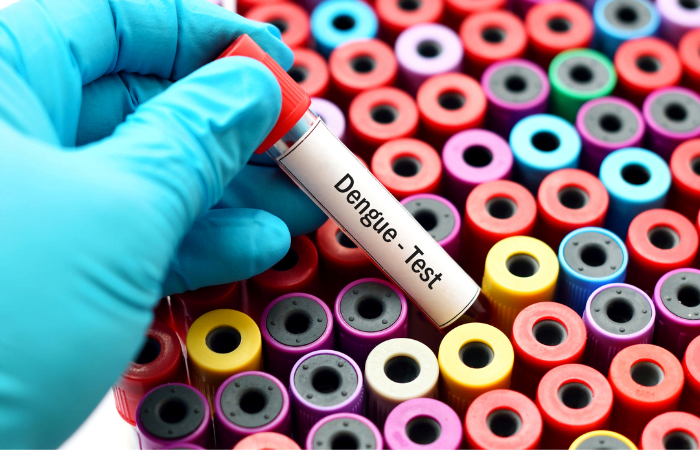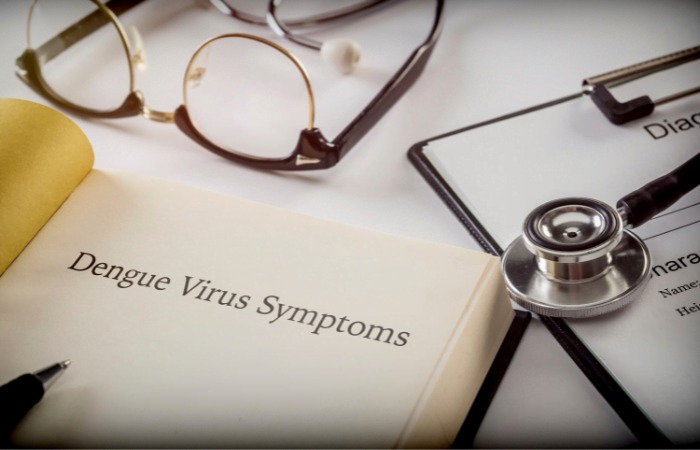
Dengue fever is a viral illness transmitted by mosquitoes, and while it is prevalent in tropical and subtropical regions, it can affect anyone in areas where these mosquitoes are found. In recent years, dengue cases have been on the rise, making it essential to be aware of the symptoms and signs, especially in the early stages. Early diagnosis and treatment can significantly reduce complications, making it crucial to act quickly when symptoms appear.
Dengue fever is caused by the dengue virus, which is transmitted primarily by the Aedes mosquito. The virus can lead to mild to severe symptoms, and in some cases, can even cause death if not treated properly. Understanding the early signs of dengue fever can help you get the right care in time.
While the symptoms of dengue fever may vary from person to person, there are several early warning signs you should not ignore:
1. High Fever One of the most common early symptoms of dengue fever is a sudden high fever, often reaching up to 104°F (40°C). This fever may appear suddenly and can be accompanied by chills.
2. Severe Headache Many individuals with dengue fever experience intense headaches, especially behind the eyes. This headache is often described as throbbing and can be severe enough to affect normal activities.
3. Pain Behind the Eyes Pain and discomfort behind the eyes are common symptoms that are often associated with dengue fever. This can intensify with movement or eye pressure.
4. Joint and Muscle Pain Joint and muscle pain, often referred to as "breakbone fever," is a common symptom of dengue fever. The pain can be severe and affect joints, muscles, and bones, making movement difficult.
5. Rashes A rash may appear a few days after the onset of fever. The rash typically starts as small red spots and can spread to other parts of the body. In some cases, the rash can be itchy and uncomfortable.
6. Nausea and Vomiting Dengue fever often causes nausea, vomiting, and a loss of appetite. These symptoms can make it difficult to eat or drink, leading to dehydration.
7. Fatigue and Weakness Severe fatigue and weakness are common in the early stages of dengue. These symptoms may last for weeks and can make it difficult to perform daily tasks.
8. Mild Bleeding In some cases, dengue can cause mild bleeding symptoms, such as nosebleeds, gum bleeding, or easy bruising. These are indicators that the body is having difficulty clotting blood.

While some cases of dengue can be mild and may improve on their own, it’s crucial to seek medical attention if you or someone you know experiences severe symptoms. You should contact a healthcare professional immediately if you observe any of the following Persistent high fever that doesn’t subside, Severe abdominal pain or tenderness, Bleeding (nosebleeds, gum bleeding, or unusual bruising), Difficulty breathing or shortness of breath, Sudden fatigue or weakness.
Prevention is key to avoiding dengue fever. Here are some important steps to reduce your risk:
1. Eliminate Mosquito Breeding Sites Mosquitoes breed in stagnant water, so regularly empty containers like flowerpots, buckets, and tires that collect water. Cover or treat water storage containers.
2. Use Mosquito Repellent Apply mosquito repellent on exposed skin to prevent mosquito bites, especially during early morning and evening hours when Aedes mosquitoes are most active.
3. Wear Protective Clothing Wear long sleeves, pants, and socks to reduce skin exposure to mosquitoes. You can also use mosquito nets if sleeping in areas prone to mosquitoes.
4. Ensure Proper Window Screens Ensure that windows and doors are properly screened to keep mosquitoes out of your living space.
Dengue fever is a serious illness, and early detection is crucial for a better outcome. The symptoms of dengue, such as high fever, headache, joint pain, and rashes, should never be ignored, especially in areas where dengue is prevalent. If you suspect you or someone you know may have dengue fever, it’s important to seek medical attention promptly to receive the appropriate treatment.
Finding a healthcare provider who can diagnose and treat dengue properly is vital. We offer a range of diagnostic services to help detect and monitor dengue fever and other viral infections. Our team of healthcare professionals is committed to providing accurate and timely diagnostic results. Our centers are located in Pune, Delhi, Nagpur, and Mumbai, making it accessible to many individuals seeking high-quality medical care.
Remember, early intervention can make a significant difference in your health, so never delay seeking medical help when you experience symptoms of dengue fever.